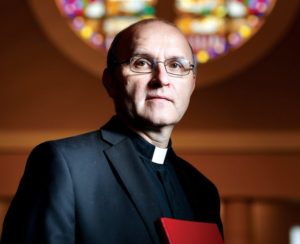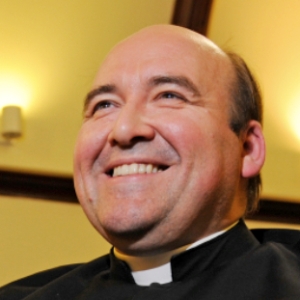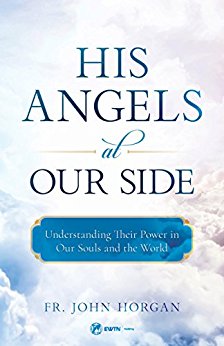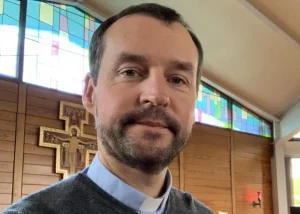Podcast: Play in new window | Download (Duration: 27:35 — 19.1MB) | Embed
Subscribe: Apple Podcasts | Spotify | Amazon Music | Android | Pandora | iHeartRadio | JioSaavn | Podchaser | Gaana | Podcast Index | Email | TuneIn | Deezer | Anghami | RSS | More
Part 1 of our conversation with Fr. Vincent Lampert on Exorcism

In Exorcism: The Battle Against Satan and His Demons, Fr. Vincent Lampert, a seasoned Exorcist of the Archdiocese of Indianapolis, offers valuable insight on the important ministry of exorcism available in the Church in our modern times. In our conversation, he offers a thorough and balanced overview of the activity of the enemy and the grace and freedom from those seeking deliverance from diabolical activity.
 You can find the book here.
You can find the book here.
From the book description:
At a time when many Christians no longer practice their faith, there has been an increase in the attention given to the devil and his devious ways. Because the devil seeks to destroy and separate us from God, all Catholics must be on guard.
Providing a window into the merciful ministry of exorcism, Fr. Lampert equips Catholics with the knowledge necessary to avoid become vulnerable to spiritual attack. In Exorcism, you’ll learn
– how the Church selects and trains priests for the ministry of exorcism
– where and how the devil operates in the world, and what Scripture has to say about it
– why it is vital for Catholics to live a vibrant life of faith
– what to do if you suspect the presence of the demonic in your life or in others and
– how to fend off spiritual attack and build a stronger relationship with God.Exorcism makes clear that the power of Satan to wreak havoc in our lives pales in light of the glorious omnipotence of our Redeemer, Jesus Christ.







